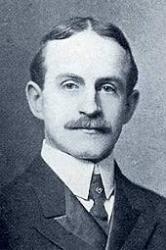Planning worship?
Check out our sister site, ZeteoSearch.org,
for 20+ additional resources related to your search.
- |
User Links
Search Results
[The Lord is in His holy temple]
Appears in 11 hymnals Composer and/or Arranger: Calvin W. Laufer Incipit: 55566 34551 23 Used With Text: The Lord is in His holy temple
[The Lord is in His holy temple]
The Lord is in His holy temple
Appears in 112 hymnals Topics: Opening Sentences: Introits Used With Tune: [The Lord is in His holy temple]
The Lord is in His holy temple
Está Jehová en Su Santo Templo
Appears in 1 hymnal Topics: Musica Liturgica Introitos Scripture: Habakkuk 2:20 Used With Tune: [Está Jehová en su santo templo]
Está Jehová en Su Santo Templo
The Lord Is in His Holy Temple
Hymnal: The Chapbook #86 (1959) Languages: English Tune Title: [The Lord is in His holy temple] (Laufer)
The Lord Is in His Holy Temple
The Lord Is in His Holy Temple
Hymnal: Hymns for Junior Worship #126 (1940) Languages: English Tune Title: [The Lord is in His holy temple]
The Lord Is in His Holy Temple
The Lord is in His holy temple
Hymnal: The Hymnal #R5 (1950) Lyrics: The Lord is in His holy temple,
Let all the earth keep silence before Him;
Keep silence before Him. Topics: Responses Opening Responses: Introits; Introits; Responses; Worship Introits Tune Title: [The Lord is in His holy temple]
The Lord is in His holy temple
Calvin Weiss Laufer

1874 - 1938 Person Name: Rev. Calvin W. Laufer Composer of "[The Lord is in His holy temple]" in The Hymnal Presbyterian minister and hymnographer Calvin Weiss Laufer was born today in Brodheadsville, Pennsylvania in 1874. Following his graduation from Union Seminary in 1900 he was ordained into the Presbyterian ministry and led congregations in New York and New Jersey for several years.
Laufer had a generally cheerful outlook on his Christian life, and his first two books, Key-Notes of Optimism (1911) and The Incomparable Christ (1914) expressed that viewpoint. A review of the first book spoke of the "crisp and stirring note in these sermonettes which is well calculated to rouse the mind of readers and banish dejection." His books were popular in their time but today are seen as somewhat superficial.
He later began to work with the Presbyterian Board of Christian Education and became its editor of musical publications, producing books such as The Junior Church School Hymnal (1927), The Church School Hymnal for Youth (1928) and When the Little Child Wants to Sing (1935). He was also the associate editor of the Presbyterian Hymnal of 1933, a very popular book which was used in many churches for more than fifty years.
In 1932, his book Hymn Lore was published, which contained the stories of fifty hymns from The Church School Hymnal for Youth, with information about their writers and composers (much like this blog). He chose a broad range of hymns, some quite modern and others well-known and loved for centuries. Several of them were by his mentor and friend Louis F. Benson, who had edited the Presbyterian Hymnal of 1895 and its 1911 revision (and also wrote The Best Church Hymns). In the preface to Hymn Lore, Laufer wrote:
To live with hymns and to make them one's own is the only sure way of appreciating their literary beauty and spiritual power. (...) That the reading and singing of hymns may become less mechanical, more thoughtful and intelligent, and emotionally more effective, this volume is released to the public.
Laufer wrote both hymn texts and tunes himself, most of which first appeared in the books he edited but also had some life outside Presbyterian circles. This tune was written while Laufer was attending a conference in Kansas, though with no particular text in mind. Not long after, he hummed it to a friend, William H. Foulkes, who then wrote the text "Take thou our minds, dear Lord."
Laufer's tune was originally called STONY BROOK, but he changed it to honor a friend, William Ralph Hall. Little is known about the writer May Pierpont Hoyt. Her text is generally sung to the tune BREAD OF LIFE by William F. Sherwin, but since that tune is more known with "Break thou the Bread of life," this text could use a different one.
--conjubilant.blogspot.com/2010/04/
Calvin Weiss Laufer


 My Starred Hymns
My Starred Hymns

